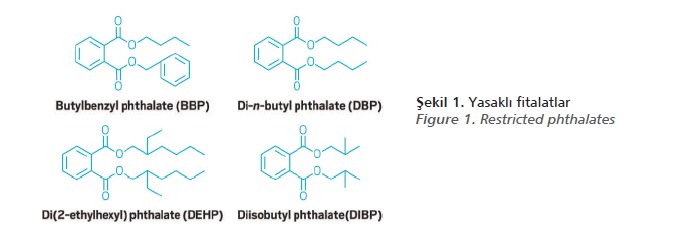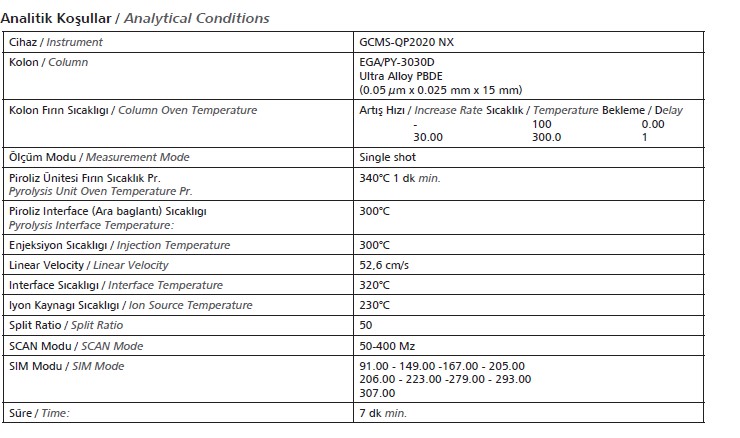Py-GCMS Analysis for RoHS Phthalate Esters
Subject
Analysis of phthalate residues in
PVC, rubber and polyurethane foam using Py-GCMS in accordance with the restriction of hazardous substances (RoHS) directive.
Purpose of the Study
The aim of the RoHS Directive, is to limit the use of harmful substances such as mercury (Hg), lead (Pb), cadmium (Cd) in electrical and electronic equipment in order to protect the environment and human health, and to ensure the environmentally compatible recycling
of electrical and electronic equipment waste within the framework of technical principles.
Restriction of Hazardous Substances Directive 2002/95/ EC (RoHS 1) is an acronym for the directive on the restriction of the use of certain hazardous substances in electrical and electronic equipment, and was adopted by the European Union in February 2003.
Products complying with this directive should not contain more than the allowed maximum concentrations of the following substances:
• Chromium (1000 ppm)
• Lead (1000 ppm)
• Mercury (1000 ppm)
• Cadmium (100 ppm)
• Polybrominated biphenyls (PBB) (PBB) and Polybrominated diphenyl ethers (PBDE) (1000ppm)
As of July 2019, phthalate components have also been added in electrical and electronic equipment (including spare parts for cable or electrical and electronic equipment repair, repair and function renewal). In this directive, restricted phthalates and their limits have been determined.
• DEHP (Bis (2-ethylhexyl) Phthalate) (1000 ppm)
• BBP (Butyl Benzyl Phthalate) (1000 ppm)
• DBP (Dibutyl Phthalate) (1000 ppm)
• DIBP (Diisobutyl Phthalate) (1000 ppm)
This directive applies to manufacturers, authorized representatives, importers and distributors of the following products:
• Large and small household appliances,
• IT and telecommunications equipment,
• Lighting products,
• Electrical tools,
• Toys and entertainment equipment,
• Sports equipment,
• ATMs and vending machines,
• Medical devices,
• Monitoring and control instruments.

Methods and Materials
Our study was carried out using Shimadzu GCMSQP2020 NX.
Equipment and Chemicals Used
1. GCMS with pyrolysis unit
2. Analytical balance (with 0.00001 g precision)
3. Shimadzu Standard Kit
4. Sample Preparation Kit
5. Sample Container (Phthalate-free)
6. Glass wool
7. NMIJ CRM 8152a


Preparation of Samples and Solvents
• Sample Preparation 0.5 mg of sample is weighed precisely in sample cups and glass wool is added on top of it.
• Preparation of Calibration Standards 0.5 mg of blank, 100 ppm and 1000 ppm standards
are weighed precisely in sample cups and glass wool is added top of it.



2. Evaluation
Blank: System contamination is checked.
100 ppm Standard: System sensitivity is checked.
1000 ppm Standard: Used to evaluate the sample.
References
• Shimadzu Application Data Sheet No:45
• Analysis of Brominated Flame Retardants and Phthalate Esters In Ploymers Under the Same Conditions Using a Pyrolysis GC-MS System (2) Phthalate Esters
Ömer Halit Turmuş
Chemist
Application Team Leader
Ant Teknik Cihazlar Ltd. Şti.






